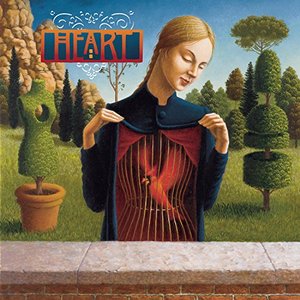Wiki
-
Length
5:25
"Edge of Seventeen" is a song by American singer-songwriter Stevie Nicks, released as the second single from her debut solo album Bella Donna in 1981. The song became one of her most iconic and enduring tracks, known for its emotive lyrics, powerful vocals, and signature blend of rock and pop influences.
Title Song
"Edge of Seventeen" is one of Stevie Nicks' most well-known songs and is often considered one of her signature solo tracks. The song stands out for its emotional depth, reflective lyrics, and the blend of rock, pop, and Stevie Nicks' unique style of mystical, poetic storytelling.
Background
"Edge of Seventeen" was written by Stevie Nicks and inspired by the tragic death of John Lennon in 1980, as well as the loss of her uncle Jonathan, who had passed away earlier. Nicks has said that the song came to her in a moment of emotional release, combining the grief she felt for Lennon and her uncle. The title refers to the "edge of seventeen" as a symbolic transition point, where life moves from youth to adulthood, and the emotional experiences that come with it.
The song was recorded as part of her debut solo album, Bella Donna, which also included hits like "Stop Draggin' My Heart Around" and "Leather and Lace." Produced by Jimmy Iovine, Bella Donna was a commercial and critical success, and "Edge of Seventeen" became one of its standout tracks.
Musical Style
Musically, "Edge of Seventeen" is a blend of rock, pop, and a bit of folk, with Stevie Nicks' signature haunting vocal style at the forefront. The song features a driving beat, with a memorable guitar riff and a sweeping, emotional melody. The song’s arrangement includes a prominent drumbeat, electric guitar, and Nicks' distinctive vocals, which are both powerful and ethereal.
The song's musical structure complements its lyrical themes, with the intensity of the music mirroring the emotional weight of the lyrics. The mix of rock and ethereal instrumentation gives the song a timeless feel, blending Stevie Nicks' style with the sound of 1980s rock.
Lyrical Analysis
"Edge of Seventeen" is a deeply personal and reflective song, centered on themes of loss, memory, and emotional growth. The song opens with the now-iconic line "Just like the white winged dove," which has become one of the most recognized phrases in Stevie Nicks' music. This imagery of the "white winged dove" symbolizes both freedom and sorrow, representing the fleeting nature of life and the emotional weight of loss.
The lyrics convey a sense of mourning and longing, with Nicks remembering lost loved ones and reflecting on the passage of time. The line "The edge of seventeen" refers to a pivotal age where young people face the challenges and emotional turbulence of growing up, with Nicks using this transition as a metaphor for personal change and the emotional impact of significant life events.
Throughout the song, there’s a sense of yearning for understanding and closure, particularly in the repeated refrain "I can't stop thinking about you," which encapsulates the longing for connection even after loss.
Chart Performance
"Edge of Seventeen" was a commercial success for Stevie Nicks. It peaked at number 11 on the Billboard Hot 100, becoming one of her most successful solo singles. The song also charted on the Billboard Adult Contemporary chart, where it reached number 13, and it remains one of Nicks' most enduring hits.
The song received significant airplay on rock radio stations and is still widely regarded as one of her signature songs. It is regularly included in her concert setlists and has become a fan favorite over the years.
Live Performance
"Edge of Seventeen" has been a staple in Stevie Nicks' live performances since its release. Nicks' emotional delivery of the song, combined with the powerful instrumentation, makes it one of the highlights of her live shows. The song's anthemic qualities and its deeply personal nature have made it a standout moment during her concerts, where it often receives an enthusiastic response from fans.
The song has also been performed during Fleetwood Mac's live shows, where Nicks sometimes incorporates it into their setlist, further solidifying its place in her live repertoire.
Personnel / Band Members
Stevie Nicks – Vocals, songwriter
Lindsey Buckingham – Guitar
Jimmy Iovine – Producer
Rick Vito – Guitar
Carlos Rios – Guitar
Davey Johnstone – Guitar, keyboards
Bob Glaub – Bass
Mick Fleetwood – Drums (from Fleetwood Mac, contributing to the track)
Reception
"Edge of Seventeen" received widespread acclaim from critics and fans. Many praised the song for its emotional depth, with particular attention paid to Nicks' haunting, evocative vocal delivery. The song was seen as a standout on Bella Donna, which was a critical and commercial success. Critics admired Nicks' ability to convey complex emotions through her songwriting and her distinctive voice.
The song is often cited as one of the defining moments of her solo career and is considered one of her best tracks. It has been described as a rock anthem, with themes of loss, emotional resilience, and personal growth resonating deeply with listeners.
Trivia
The iconic "white winged dove" line in the song was inspired by a real-life experience Nicks had, where a dove appeared outside her window while she was mourning the loss of John Lennon.
The "edge of seventeen" is a reference to a pivotal time in life, with Nicks using it to symbolize the emotional and personal transitions that happen as people grow up.
The song's distinctive riff was created by guitarist Lindsey Buckingham, who played a key role in shaping the song's sound.
Legacy
"Edge of Seventeen" remains one of Stevie Nicks' most beloved songs. Its haunting melody, emotionally charged lyrics, and powerful vocals have ensured that it continues to be a staple in her catalog. The song has been widely recognized as one of the greatest rock songs of the 1980s and has become one of Nicks' signature tracks, alongside her hits with Fleetwood Mac.
The song continues to receive airplay on classic rock and 1980s music stations, and it is frequently included in retrospectives of Nicks' career. It remains a symbol of both the emotional and musical depth that Nicks brought to her solo work, and it is often performed at her live shows to the delight of fans.
Track descriptions on Last.fm are editable by everyone. Feel free to contribute!
All user-contributed text on this page is available under the Creative Commons Attribution-ShareAlike License; additional terms may apply.









